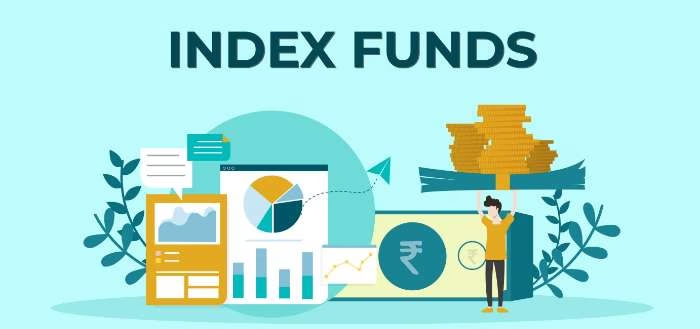Investing has always been a powerful tool for building wealth, but in 2025, it’s more accessible and diverse than ever before. With new technologies, evolving markets, and innovative investment platforms, beginners today have a wide array of options at their fingertips. However, with so many choices, it can feel overwhelming to know where to start.
If you’re new to investing, don’t worry—the key is to start small, stay consistent, and choose strategies that align with your financial goals and risk tolerance. Let’s explore some of the best investment strategies for beginners in 2025.
1. Start with a Solid Foundation
Before diving into investments, every beginner should build a strong financial base:
Emergency Fund: Save at least 3–6 months of expenses in a high-yield savings account.
Pay Off High-Interest Debt: Credit card debt and personal loans often carry interest rates higher than most investments can return.
Set Clear Goals: Are you saving for retirement, a home, or just growing wealth? Goals shape your investment strategy.
A stable financial foundation ensures you won’t have to pull money out of investments during emergencies.
2. Index Funds and ETFs: A Beginner’s Best Friend
For new investors, index funds and exchange-traded funds (ETFs) are among the simplest and safest strategies. These funds track the performance of a market index, such as the S&P 500, giving you exposure to hundreds of companies at once.
Why they’re great for beginners:
Diversification: Reduces the risk of putting all your money in one stock.
Low Cost: ETFs and index funds usually have low fees compared to actively managed funds.
Ease of Use: You don’t need to research individual stocks—just invest and hold.
In 2025, robo-advisors and investment apps make investing in ETFs easier than ever, often with automated rebalancing to keep your portfolio on track.
3. Dollar-Cost Averaging (DCA)
Timing the market is nearly impossible, even for professionals. That’s why beginners should consider dollar-cost averaging, a strategy where you invest a fixed amount of money at regular intervals (e.g., $200 every month) regardless of market conditions.
Benefits of DCA:
Reduces emotional investing since you’re consistent in both highs and lows.
Smooths out market volatility over time.
Builds discipline and long-term wealth without needing to watch the market daily.
4. Explore Sustainable and Ethical Investing
In 2025, many investors are choosing ESG (Environmental, Social, Governance) funds that align with personal values. These investments focus on companies committed to sustainability, ethical practices, and social responsibility.
Why consider it?
ESG funds have grown significantly in recent years and are projected to keep expanding.
They allow you to invest in industries of the future, like renewable energy and clean technology.
Beginners benefit from investing in areas they believe in, making the process more meaningful.
5. Real Estate Investment Trusts (REITs)
Buying property can be expensive and complicated, but REITs offer an easier entry point. These are companies that own, operate, or finance income-producing real estate. By investing in REITs, you gain exposure to real estate without having to manage tenants or properties yourself.
Advantages for beginners:
REITs pay dividends, providing regular income.
They diversify your portfolio beyond stocks and bonds.
Easily accessible through stock exchanges.
6. Learn About Bonds and Fixed-Income Options
While stocks and ETFs get much of the attention, beginners should also understand bonds. Bonds are loans you give to governments or corporations in exchange for interest payments.
Why bonds matter:
Lower risk compared to stocks.
Provide stability and predictable returns.
Great for balancing a beginner’s portfolio, especially if you’re risk-averse.
In 2025, digital platforms will make it easier than ever to invest in bonds, even with small amounts of money.
7. Take Advantage of Robo-Advisors
For those who don’t want to spend hours researching investments, robo-advisors are a wise choice. These automated platforms use algorithms to build and manage your portfolio based on your risk tolerance and goals.
Benefits:
We offer low fees compared to traditional financial advisors.
Hands-off approach—perfect for beginners.
Automatic rebalancing and tax-loss harvesting.
Popular platforms in 2025 are offering hybrid models that combine robo-advisory with human financial experts, giving you the best of both worlds.
8. Be Cautious with Cryptocurrencies
Cryptocurrencies remain a hot topic in 2025. While they’ve matured compared to a decade ago, they are still highly volatile. For beginners, crypto should not be the core of your portfolio but rather a small, speculative portion (5–10% at most).
Tips for crypto investing as a beginner:
Stick to established coins like Bitcoin and Ethereum.
Use secure, regulated exchanges.
Never invest money you can’t afford to lose.
9. Invest in Yourself First
The most overlooked but valuable investment is self-improvement. Online courses, certifications, or even professional networking can yield higher returns than stocks or bonds. In 2025, with the rise of AI and automation, upskilling is crucial to staying competitive in the job market.
Consider investing part of your money into:
Professional courses (tech, finance, design).
Building a side hustle.
Networking and personal development.
These investments may not show up in your portfolio, but can significantly increase your earning potential.
10. Stay Consistent and Patient
No matter which strategy you choose, remember that investing is a long-term game. Beginners often get caught up in daily market fluctuations, but the real rewards come with patience and consistency.
Tips to succeed:
Reinvest dividends to accelerate growth.
Don’t panic during market downturns—volatility is normal.
Review your portfolio once or twice a year, not every day.
Final Thoughts
In 2025, investing is more beginner-friendly than ever. Whether you choose index funds, REITs, robo-advisors, or ESG options, the key is to start early, stay disciplined, and focus on long-term growth.
Don’t feel pressured to become an expert overnight. Even small, consistent investments can compound into significant wealth over time. With the right strategies and mindset, you’ll be well on your way to financial freedom.




